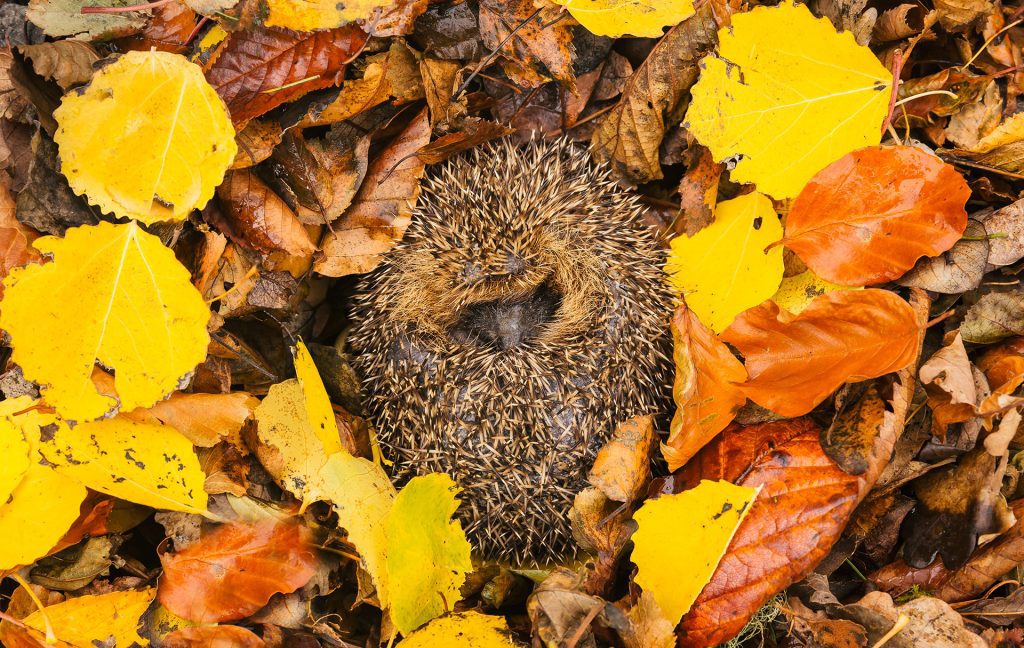Can We Hibernate Now Please?
While it’s tempting to cwtch and sleep through the dark months of autumn and winter, can humans really hibernate?
Hibernation is the way many animals survive cold winters, especially when food sources are so scarce. Many animals don’t have the option to migrate to warmer climes so migration is their best option of survival.
In order to survive their hibernation, animals will fatten themselves up as much as they can during the warmer months. They’ll also find a place to stay during their hibernation. Their place of residence during the winter months needs to be a safe one since they could be vulnerable to predators. They’ll spend their time getting their beds comfy and cosy, but also hidden from view so that they are safe.
This all sounds wonderful, especially when we as humans are faced with colder and darker nights. The appeal of this makes us long to cuddle up in a warm place and sleep through to spring. But is this at all possible?

Recent studies have shown that our ancestors did at least try, even if they weren’t that successful. A study of human skeletons unearthed in a Spanish cave called Sima de los Huesos – the Chasm of Bones showed that early humans possibly attempted to hibernate.
The deep shaft where the skeletons were found is home to a huge number of fossils, where archaeologists have discovered thousands of skeletal remains that are around 430,000 years old.
The study explained that bears utilise specialised metabolic processes that protect their bodies during their winter sleep. However, if bears don’t stock up on the right nutrients before they bed down for the winter, they can wake up in the spring with a host of diseases.
The study at Sima de los Huesos showed that this is likely what happened to our human ancestors who attempted to replicate the hibernation process themselves. Lack of Vitamin D, which we get directly from the sun, would have also caused bones to become brittle during the winter months.
When we think of hibernation, we often think of an extended period of sleep but this isn’t exactly how hibernation works. Animals instead experience what’s called torpor, the physiological state of metabolic depression, in which the body’s temperature, breathing, and energy expenditure drop. There is no evidence to show that humans are capable of doing this.
Instead, scientists have discovered that humans need more sleep during the winter, and whether you’re an early bird or a night owl, all human sleep is regulated by the sun.

A 2023 study has shown that humans experience more REM sleep during the winter. REM (Rapid Eye Movement) sleep is the part of sleep where most of our dreams happen and is known to be directly linked to the circadian clock, which is affected by changing light. The study showed that during winter, humans get on average, 30 more minutes of REM sleep each night than they do during the summer.
This is most likely because of the reduced number of daylight hours we receive in winter. This in turn affects our circadian rhythm and makes our bodies produce more of the ‘sleep hormone’, melatonin.
The reduction in Vitamin D can also affect our immune system, leading to us getting illnesses and ailments.
If humans are to ever truly hibernate, it’s not just the effect on the body’s metabolism that needs to be taken into account. The brain, which is hugely sensitive to lack of oxygen, would also need to be protected during any hibernation because of its lack of nutrients and blood.
Science has shown us that hibernation reduces and reorganises the synaptic connections that form the basis of our memories. It’s possible that the brain could become damaged if it’s not properly restored via the mechanisms of sleep.
At present, scientists don’t fully understand how the process of torpor or hibernation begins in animals; the animal kingdom seems to know how to do this safely and naturally. Humans, on the other hand, would need artificial assistance to begin a hibernation process, something which has never been tried before.

